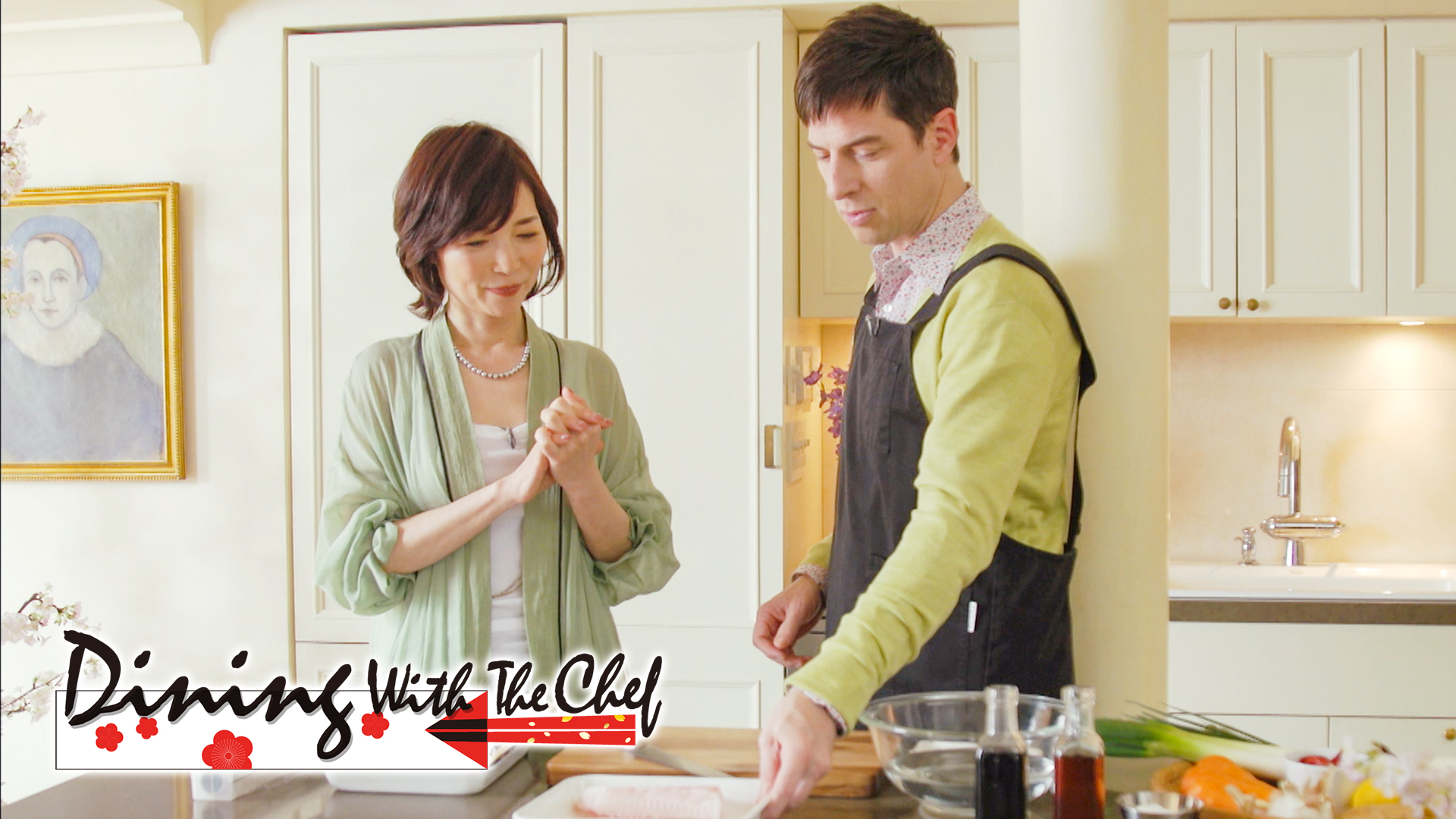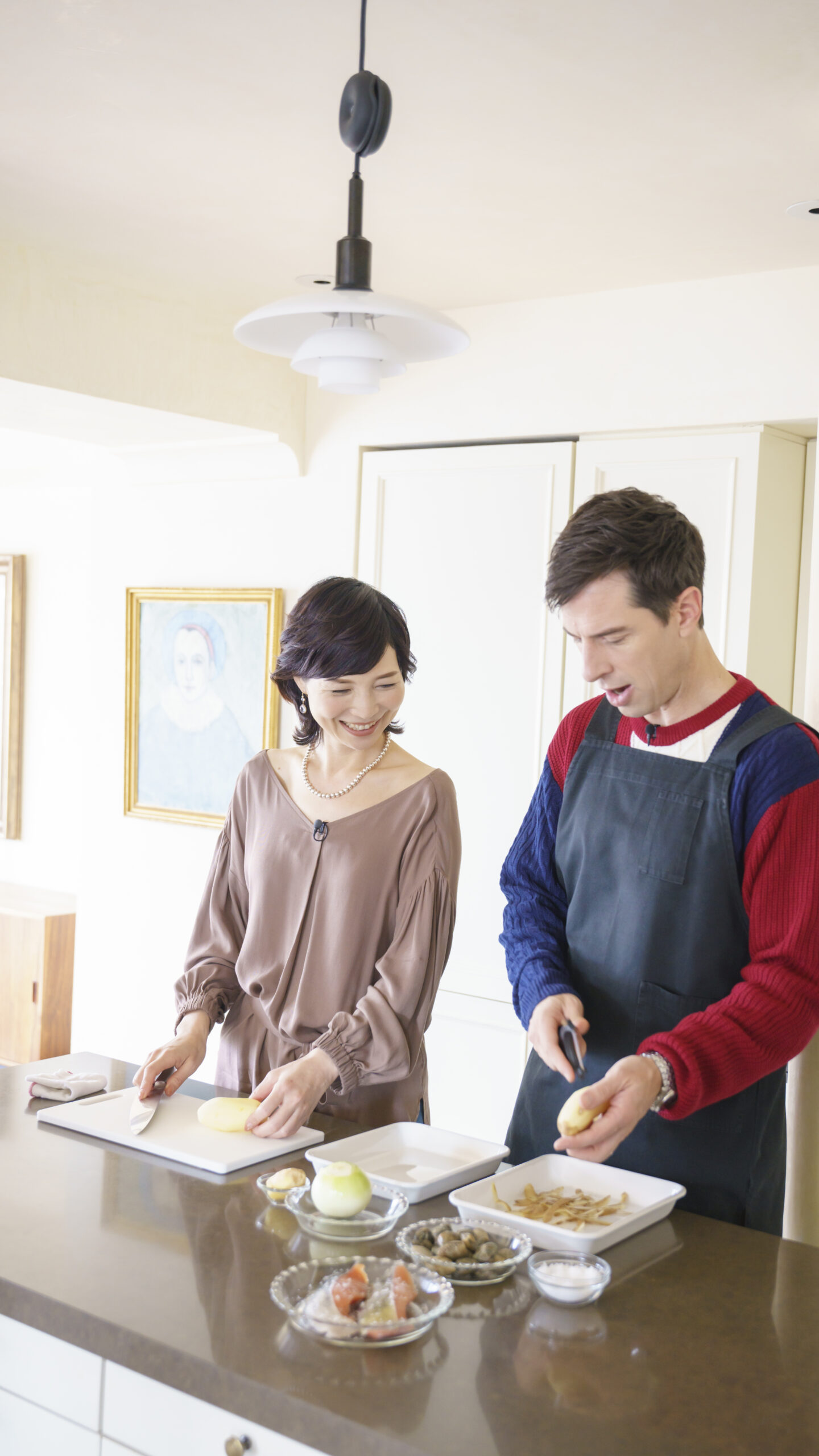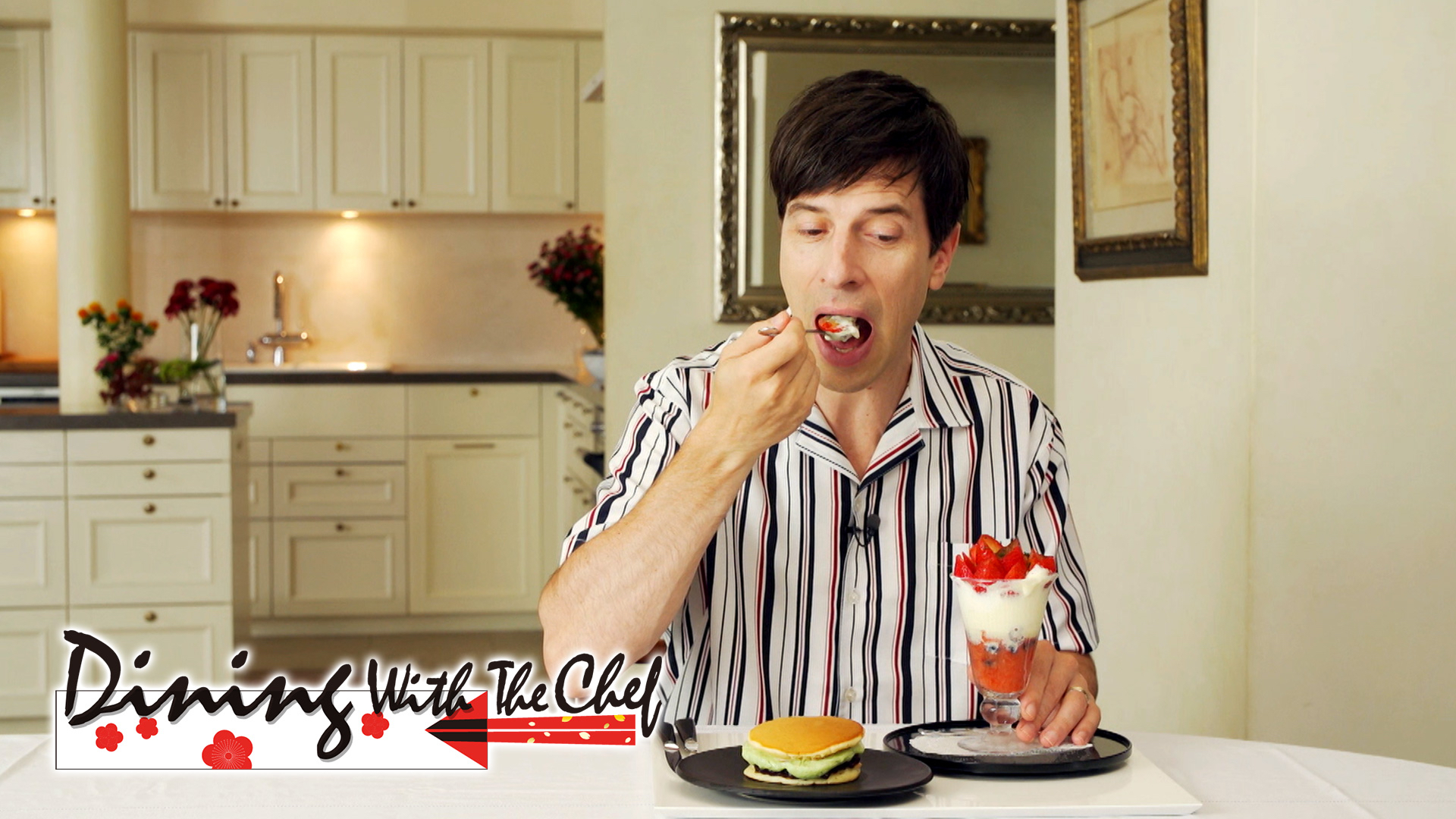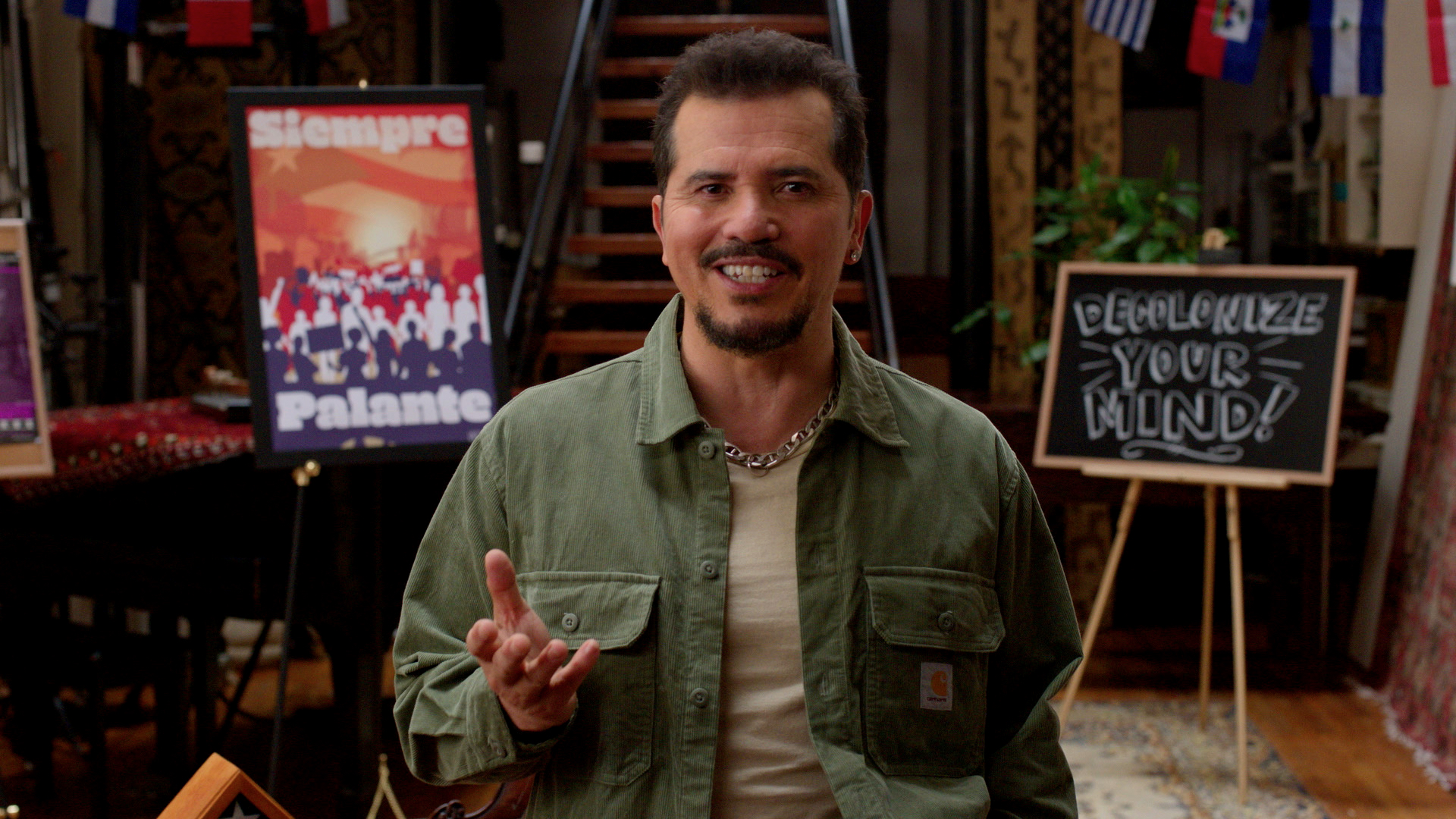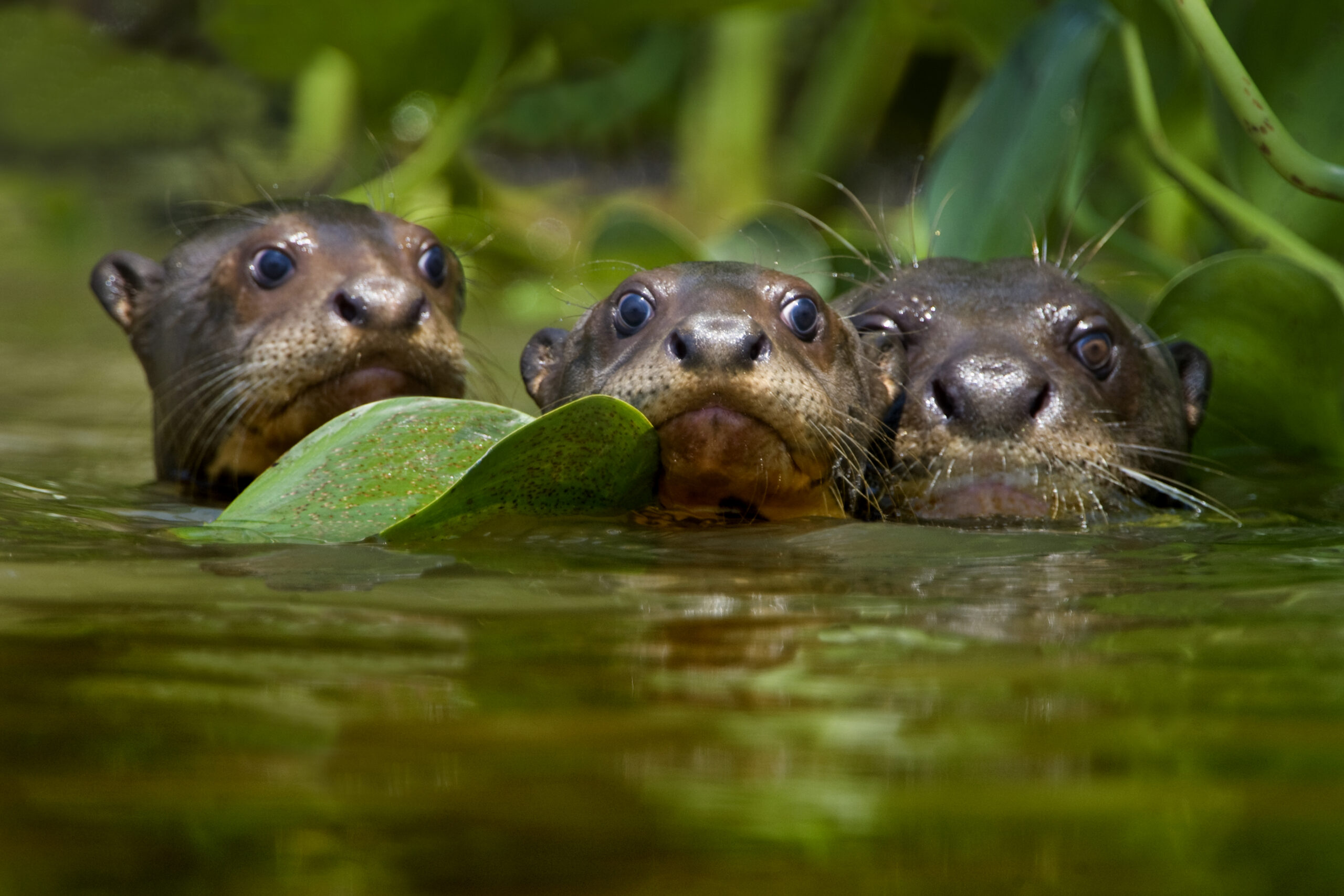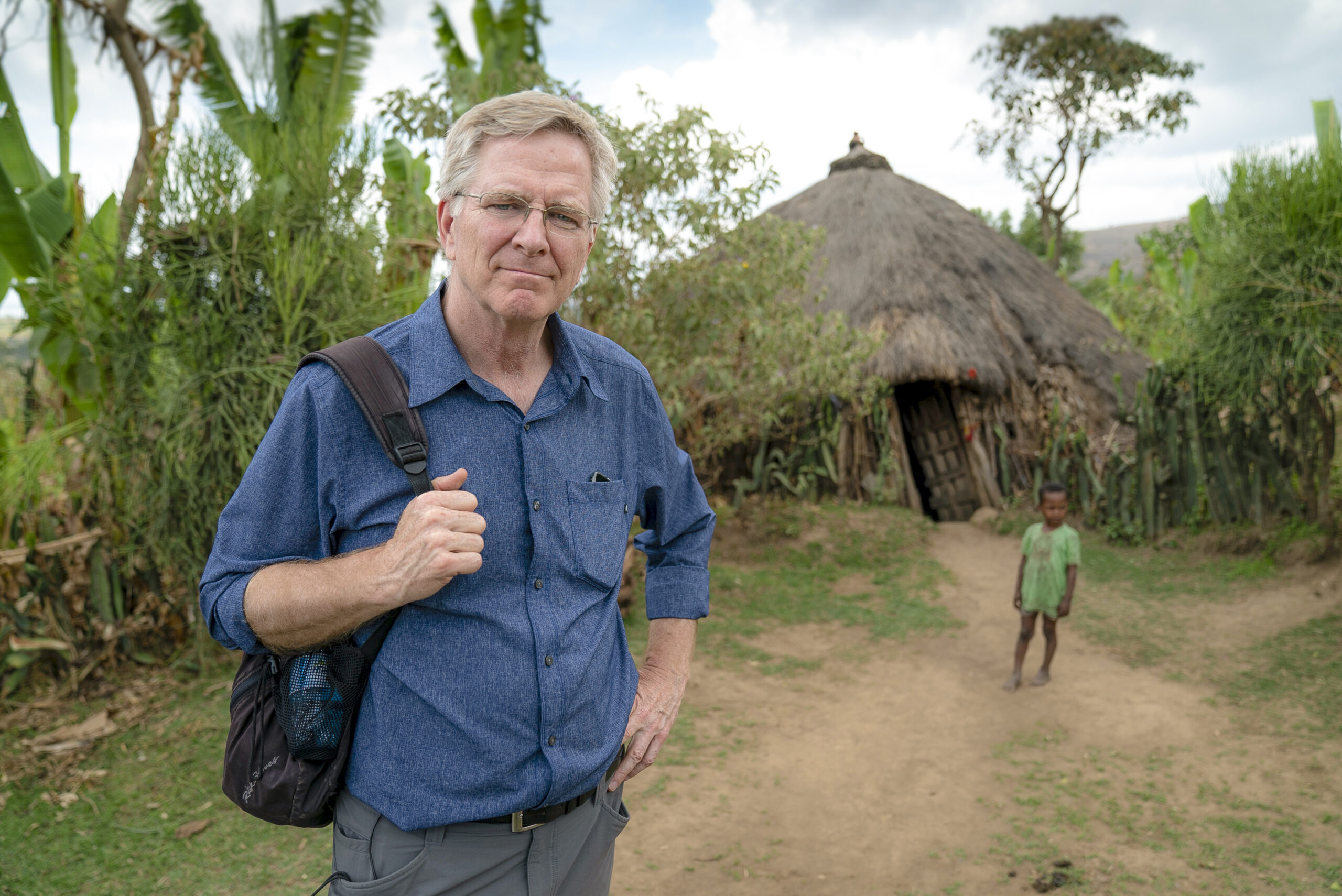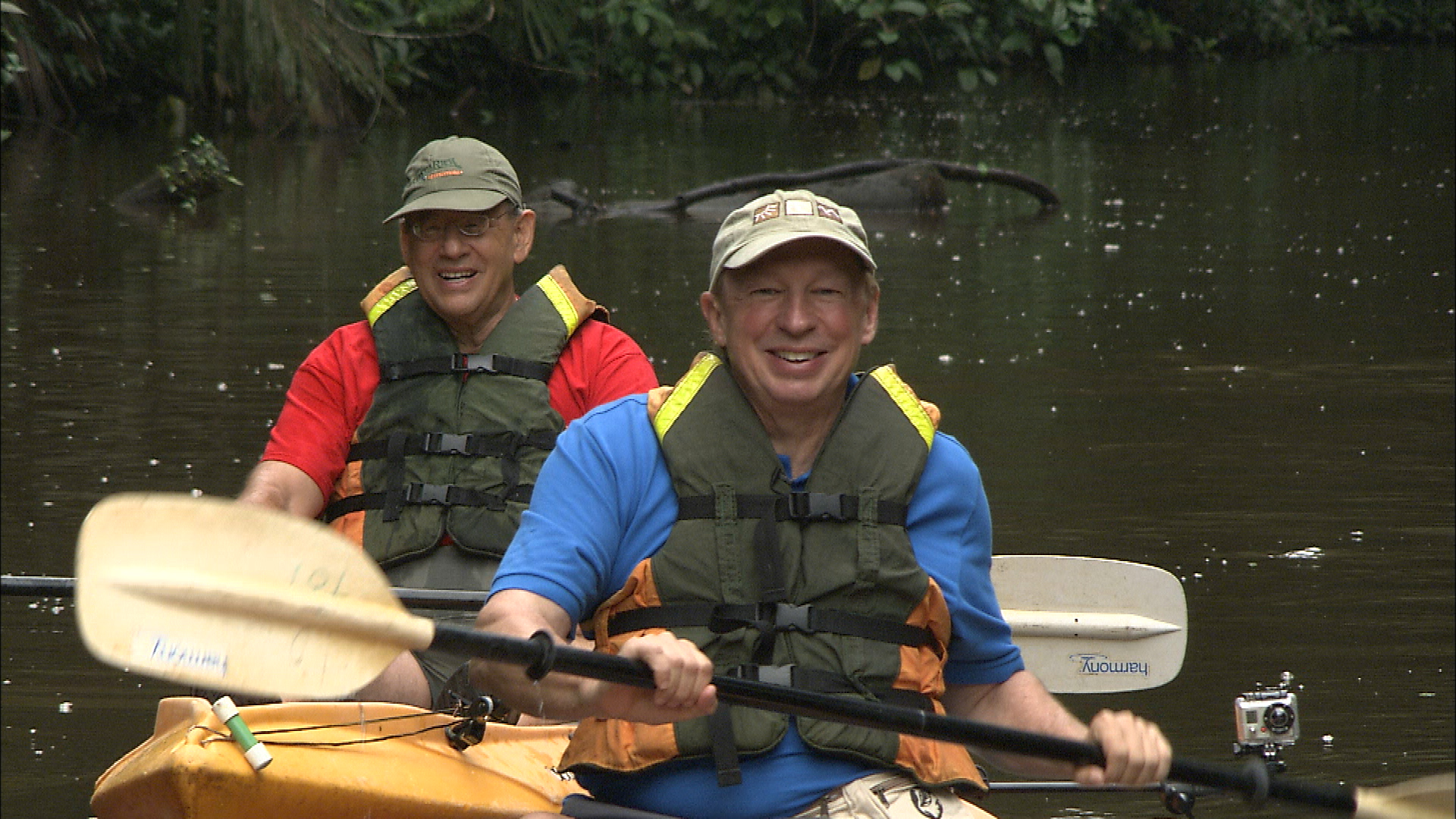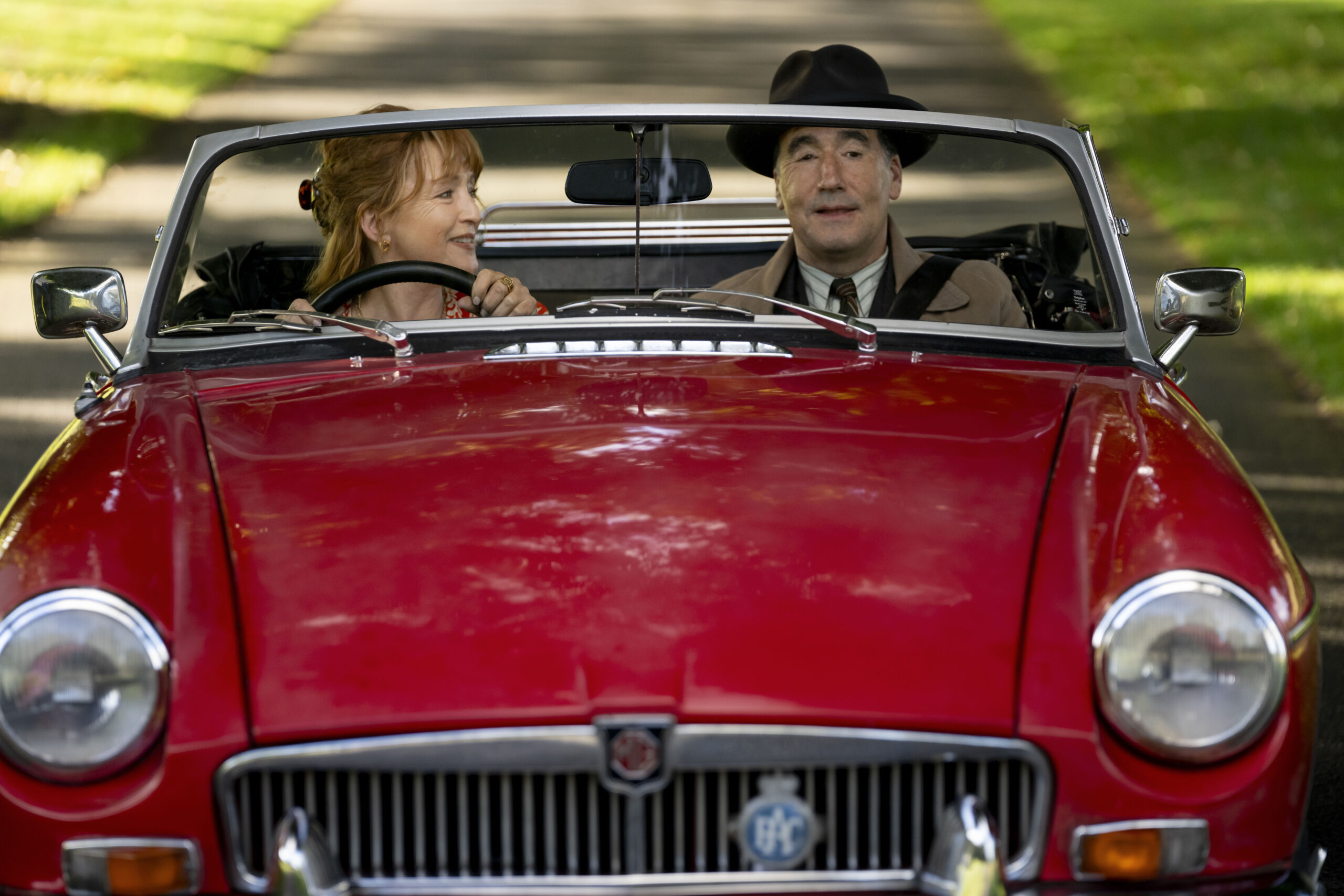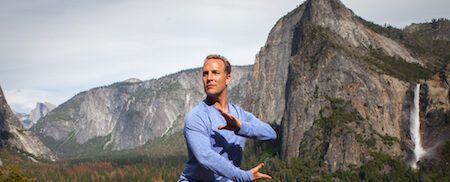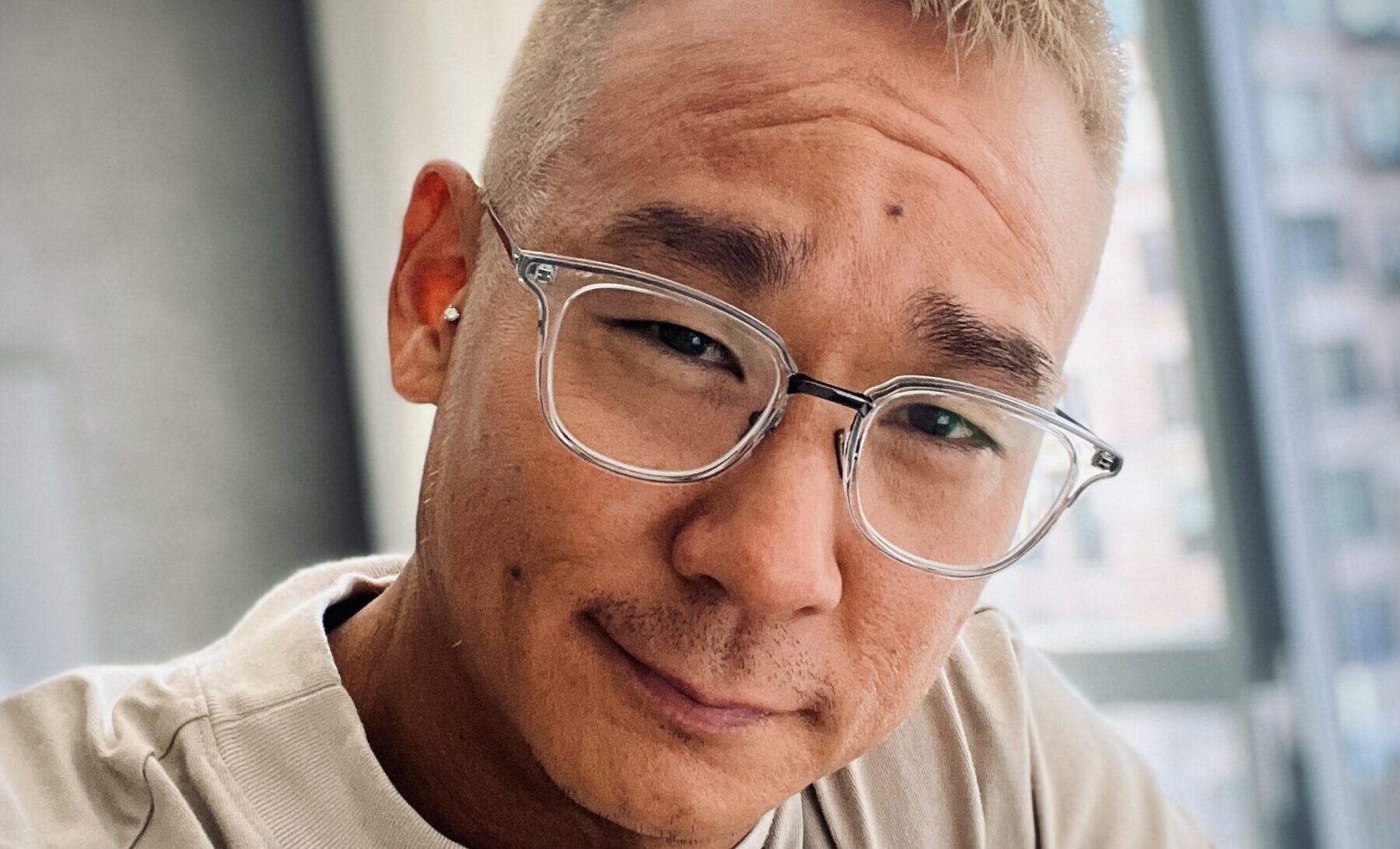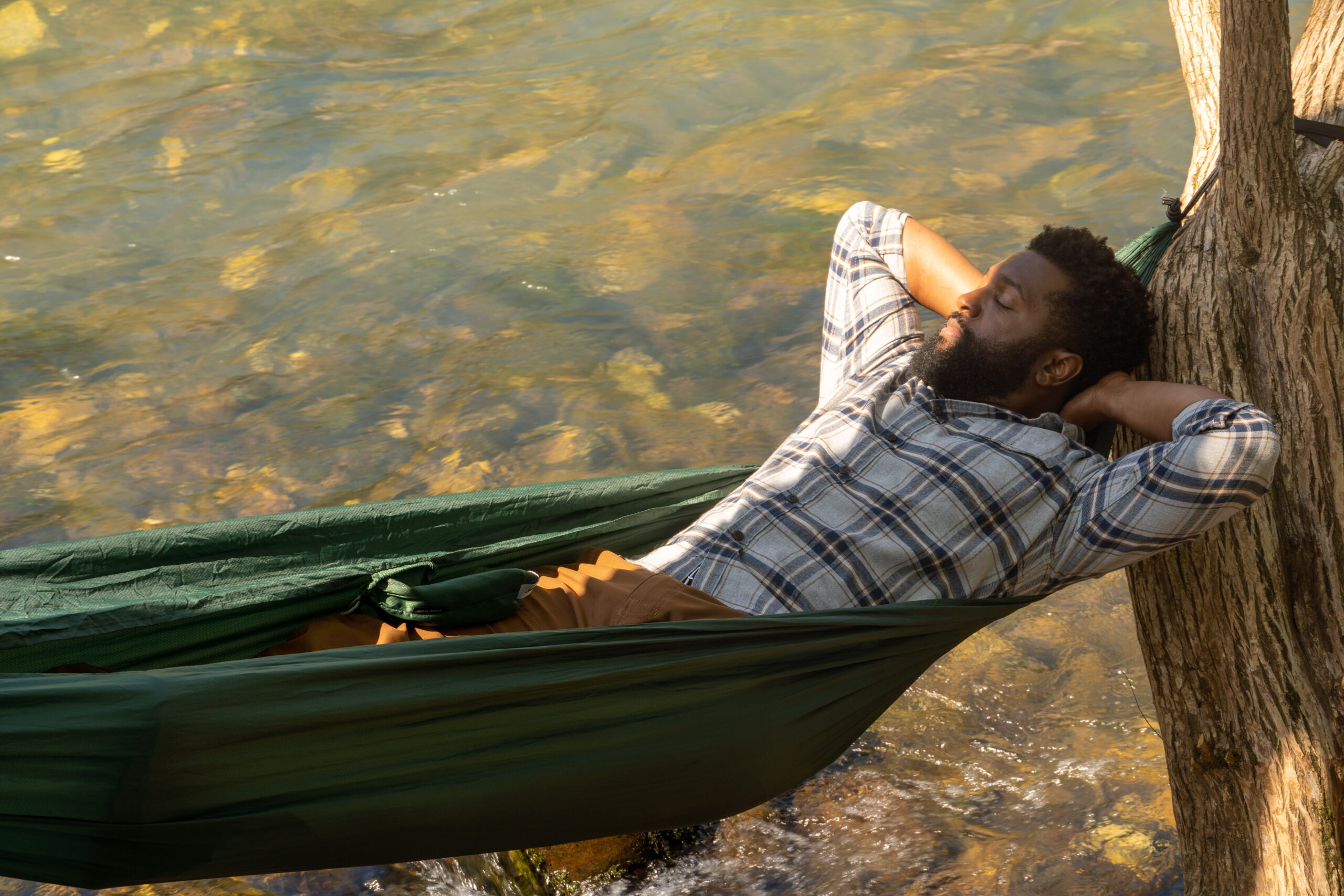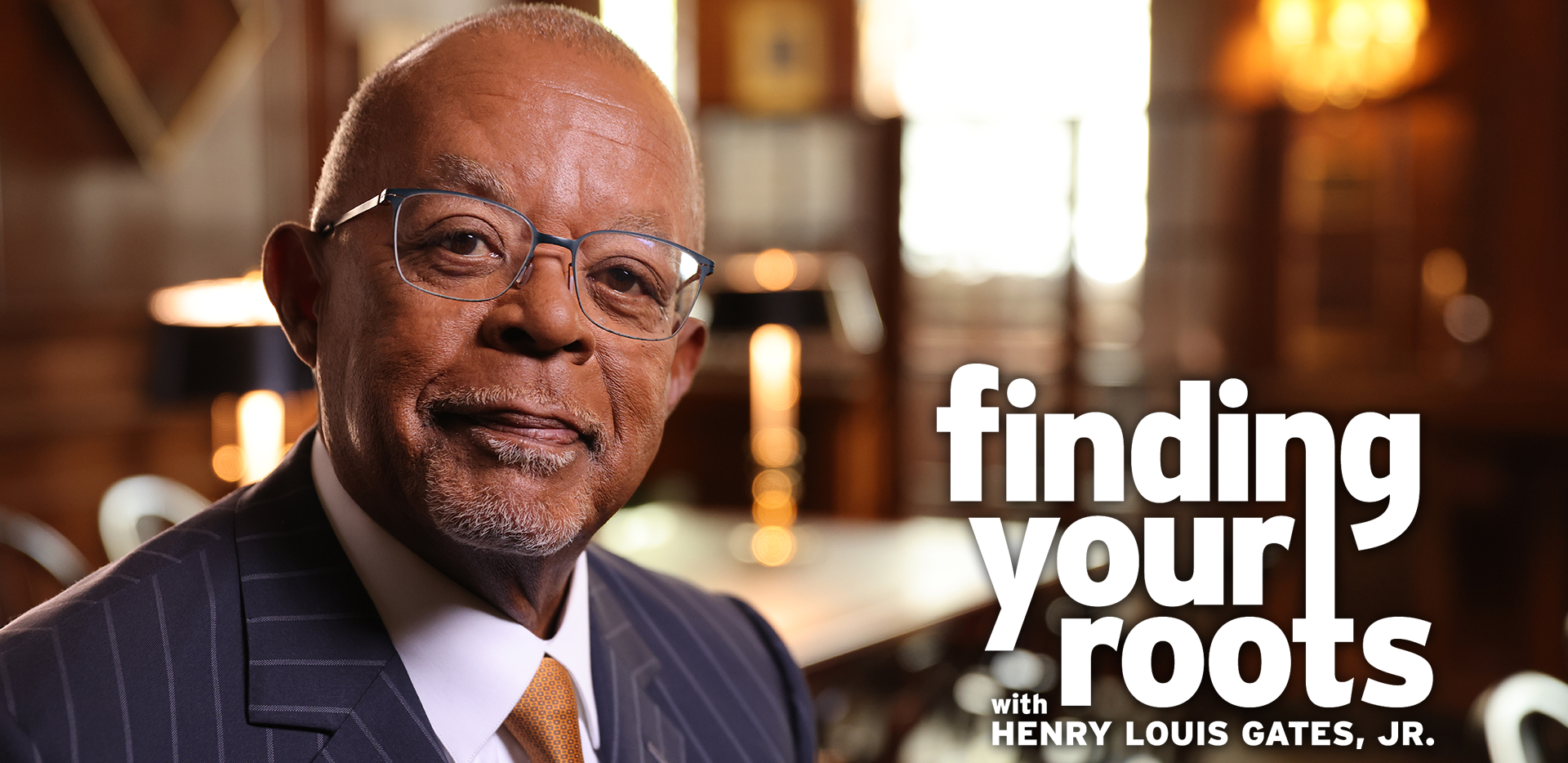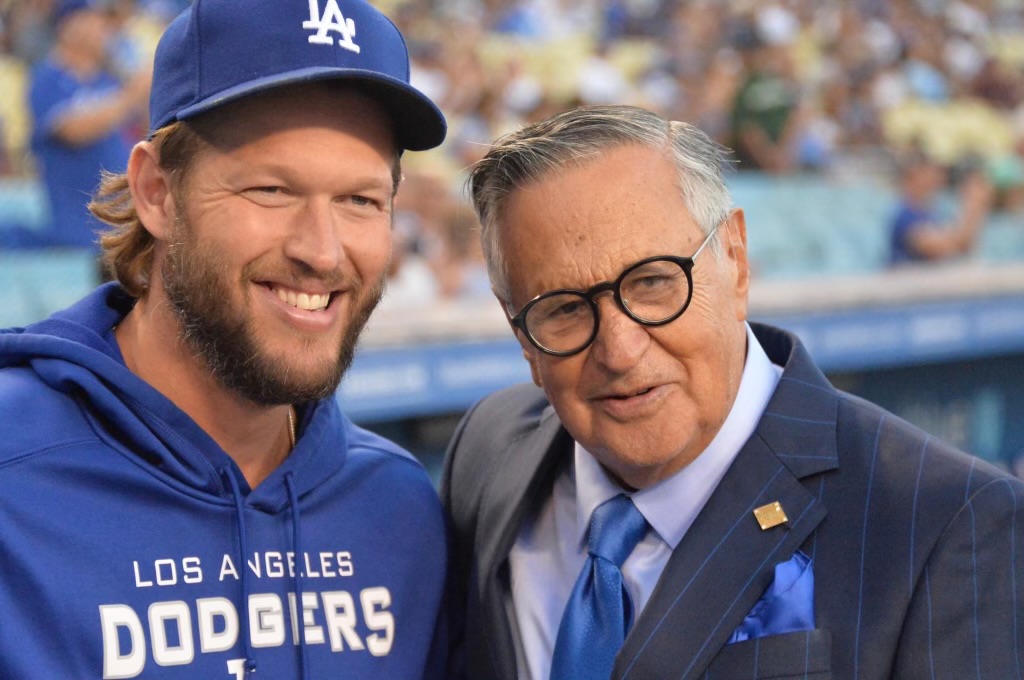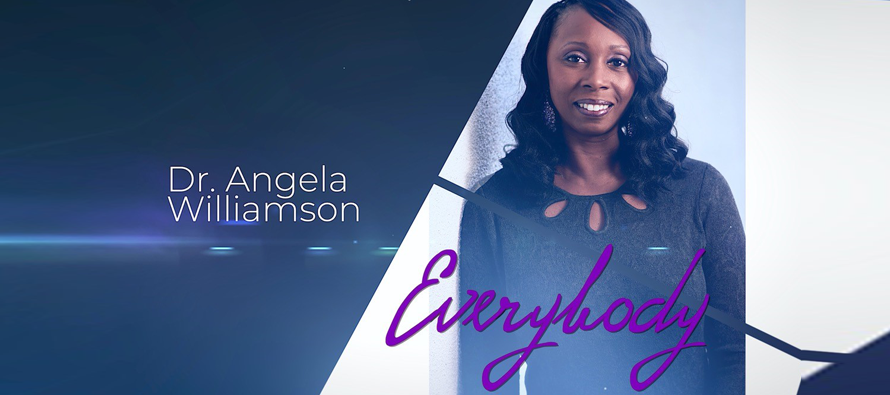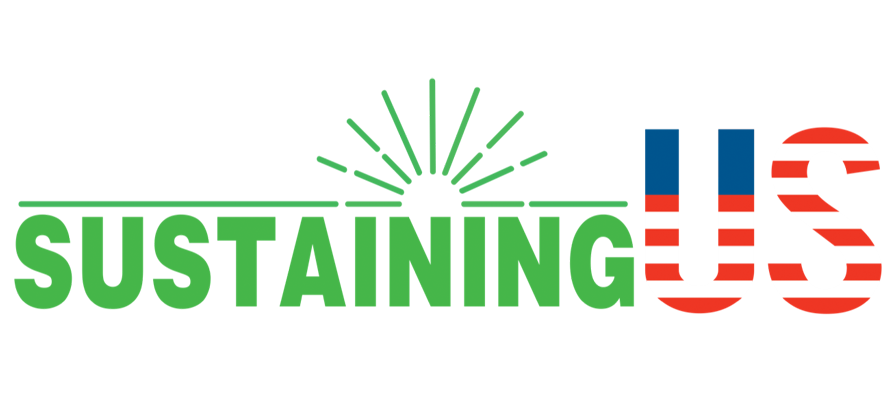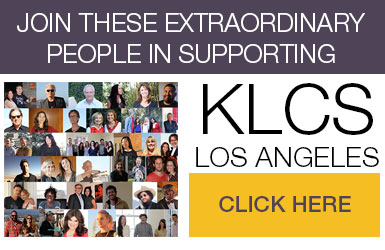Patrick Harlan is the host of “Dining with the Chef,” where he interviews chef Rika Yukimasa on Japanese home cooking. We interviewed Rika early in 2020 and now that Patrick is cooking alongside her, we talk to “Pakkun,” as he’s affectionately called by the Japanese public, on how he got to Japan after Harvard, what it’s like being the most known TV celebrity there, and if he ever thinks about moving back to the States.
Patrick, we spoke to Rika Yukimasa your co-host at the start of the pandemic, the show has continued without a glitch, it seems, and you started cooking alongside her with a glass partition, instead of interviewing her on the recipes she was preparing.
Originally we did the whole thing right next to each other. I wouldn’t say I cooked alongside her, but I did assist along with her, I did a lot of peeling, grating, chopping. After Corona hit, we did a lot of distance cooking, which was terrible for me. I much prefer the hands-on experience. But we did a couple in different studios to be completely remote, which gave me the perspective of the average viewer, which is kind of fun, and not nearly as fun as getting my hands dirty and smelling the kitchen smells and goofing off with Rika during the breaks. So, when we got back to in-person, we had a couple months where we were remote in the room, so I say, “Hey, what are you doing now?” But now we’re back to side by side, just with a partition and I get to do things like I’ll cook my own version of whatever she’s making. Which is fun because it’s neat to cook your own food and take responsibilities for any mistakes you make. And hers always looks nicer, but mine tastes good and they look the same after chewing. (laughs)
What motivated you to cook alongside her, you were mostly the host?
She is the chef in “Dining with the Chef,” I’m largely the dining part, but the show makes you want to cook. Her recipes are super easy, and they always turn out great and even if she makes a mistake along the way, she teaches you how to cover it up – rotate it, flip it, add something to the end so it looks perfect. And those recovery moments were most encouraging for me because I make a lot of mistakes when I cook (laughs). But her approach is so interesting and fun, so you had to try it, right? So, I imagine the viewers wanted to give it a shot, I wanted to give it a shot immediately and that ended up being simultaneous.
The show’s recipes always include mirin, sake, a pinch of sugar and soy sauce. So do you cook Japanese food easily now?
I didn’t really cook Japanese food before we started the show, but now, yeah, those four things, plus a little bit of water, depending on what you’re making, translates into everything from sukiyaki, to teriyaki, to Itamemono – stir fry, you can use that base. You can add it to soup, you can do anything with it basically. But once I had a grasp of these basic Japanese flavorings, I do a lot more Japanese flavored foodl; although it’s not exactly Japanese cooking because I always end up using what’s in the refrigerator.
What is a favorite dish you like to make now that is healthy and easy?
Teriyaki chicken, I make it so much my kids call it “Daddy-yaki chicken.” It’s super easy. Just those four things, a little extra water, I always use thighs, I never use chicken breast, just because it’s easier, it cooks faster, it has more of that fatty, wonderful juiciness. Cook it skin down first, add the ingredients, flip it over, cook down the ingredients until they’re a sauce, pour the sauce on top at the end. You cannot go wrong.
How did you end up in Japan? I recall you saying somewhere, you went to Harvard and then moved to Japan?
Yup. I got a degree in comparative religion in 1993 and I don’t know if you’re aware of this, but there’s been a shortage of openings for religion comparators. It didn’t lend itself directly into a career. But I wanted to experience an adventure, I wanted to broaden my horizons, and sort-of continue my education without actually going to school. So a friend of mine from Colorado Springs said, “I’m moving to Japan, do you want to come?” “Sure! Can’t go wrong.” I got a job teaching English in a little town on the west coast called Fukui and about half a year later, I was pretty confident in my Japanese skills so I joined a theater group out there. A year later I was on the radio, a year after that I paid off my college debt and decided to pursue my dream, which is making a living in entertainment. And I had the choice of moving back to America, but there are a lot of people in America with similar physical properties, similar voices, similar acting experiences. The competition’s pretty good. In fact, Matt Damon was at Harvard the same time I was and he was out there doing great things. So I thought if I move to Hollywood, I’m going to ruin his career. So I’ll hang out over here. I gave him a break and moved to Tokyo instead.
I bet foreigners who speak Japanese are seen as celebrities, as it’s rare; most people look Asian, so you would stand out and already be treated in a special way.
Back in the day that was certainly more true than it is now. There are lots of foreigners who speak Japanese well. But yes, there’s a little bit of a celebrity thing going on when you walk into a convenient store and the clerk stops what she’s doing and looks up at you. Or when you walk through a park and a kid walks up and says, “This is a pen!” They’re not even holding a pen, but they learned that from a commercial and yell it at you because you happen to be a foreigner. It was all interesting. But there’s definitely a difference between being a local celebrity, or a notable resident of a small town and making your living on TV. I assumed that celebrity status would translate immediately, but it didn’t. It takes a little bit more of an effort.
Are you a big celebrity in Japan?
Huge. It’s hard to say this honestly without sounding like bragging, but yes, I’m probably the best known foreign celebrity in Japan.
Because you’re on TV?
Yes, I’ve been on TV for 26 years now. I’ve hosted some really, super popular shows. I don’t host any on the terrestrial channels now, but I do host some on cable networks and online networks. And I’ve been a comedian for 25 years. I was the first non-Japanese two-person standup comedy act, and I do a lot of commentating. A few years ago, I was voted “Most Likeable Commentator” in the country. That includes Japanese people, so I think I’m doing alright.
Do all foreign celebrities on TV know each other?
That’s funny, that’s a really good question. I know most of the major players, yes. Like I just had a party two nights ago, with a couple of famous singers, a famous DJ and a famous magician.
How was it, to adjust living in Japan and speaking that language solely when you started out? Was that hard, to speak another language? Do you flub both languages because your brain is focused on two languages?
(laughs) I’ve flubbed a couple of times already in this 15-minute conversation. My brain wasn’t that great in one. Japanese is a different language entirely from English, it’s not Spanish which I also speak a bit, or French or German even. The word order is backwards so instead of saying, “I go to the park with my sister,” you say, “I with my sister to the park go.” It’s like speaking like Yoda. Yoda would probably pick up Japanese pretty quickly. But there’s more actually to the communication than just the language. It’s understanding the cultural mores, it’s understanding where Japanese people respond. This is what probably makes me a better performer than some of my competitors; I get that Japanese vibe pretty well. Also, one of the things
that’s tricky about Japanese is they leave a lot of info out of every sentence. You might be, for example, talking with someone about tennis. You don’t say, “Do you play?” You say, “Play?” And they say “Often.” And you say, “Last time?” They say, “Struggled.” (laughs) It sounds really weird, but it’s full rich communication without the unnecessary parts, which everyone understands. But this can lead to confusion. A few years ago I was talking to my wife and she was cooking in the kitchen and she says, “Do you ever think about having more children?” I say, “Sure, we can talk about it. It’s of out of the blue, but ok. “And the next thing she said, in Japanese, is, “It’s done,” but it also means, “I’m pregnant.” But she was talking about dinner, but she didn’t say “Dinner is done.” You leave the subject out. Instead, she just said one word, “Done.” Which led to a brief moment of panic before I realized she was talking about dinner.
I’m assuming your wife is Japanese?
Yes, quite.
So you speak Japanese at home and not English?
Or I speak English with the kids.
I always think, when I watch you on the show, “I wonder how happy he is to live in Japan?” It sounds like you’re settled with a family, which means you’re never moving back to the States since you’re path in life seems well established in Japan. Do you think about that a lot?
(laughs) My parents used to ask me every phone conversation when I was coming home. They stopped about 15 years ago. And I don’t ask myself that question so much, like, “When am I going to go home?” But I always leave the possibility open that I’m going to do something else somewhere else. I’ve been here for 26 years, I’m over 50. I’ve had an incredible life and I do have a great life here. Like the party two nights ago with this incredible group of performers; last night I had a barbecue with an incredible group of young people, college kids. I teach college courses, so I get to hang out with young people. I do serious commentaries, so I get to hang out with chiefs of staff and parliament members. And I’m a comedian so I get to hang out with funny people. I have this incredible circle, a bunch of incredible circles and each of them fulfill a different need emotionally, intellectually for me. And I have this incredible job which lets me get around the country visiting incredible sights, meeting people you don’t usually get to meet, experiencing things you ordinarily have to pay to do, if they let you do it at all. And they pay me to do it! So I have the ideal life and I don’t think I’m going be giving it up voluntarily. (laughs) But there’s always a chance they’ll stop using me, at which point, I’ll go and do it somewhere else.
What is the favorite part of your job?
It’s hard to narrow it down, they’re all pretty great. I cook with Rika and learn how to cook and then I get to eat this awesome food prepared by an incredible chef and they pay me for it; and that’s like Tuesday. And the next day, I get to go on TV and talk to incredible people about interesting things and they pay me for that! And then I go take a trip, walk down a street somewhere into a random shop, meet random shopkeepers who are also really interesting, get a tour of sake factories which is neat, and they pay me for that too. Everything I do is great. I do comedy shows across the country, people come and fill a hall and laugh with us for 90 minutes. Can anything be better than that? The next day is also pretty good. I keep a diary just so I don’t forget how incredibly lucky I am. And looking back through it, every day is pretty incredible. I met Matt Damon a couple of times, I met like Will Smith, Al Gore, Steve Bannon (laughs), not that I’m a fan, but it was an interesting experience. I met Adele, all these lucky things that I’ve gotten to do. But when I met Matt Damon, he said “What are you doing here?” I said, “I make a living working on TV.” He said, “Man, that’s incredible. You know, 99 percent of performers can’t make a living. You’ve got to stay here man, that’s great.” I could tell he was worried about the completion. I believed him and I stuck it out.
I asked this of Rika – What are some things that you do that are fun on the set?
I chop cucumbers for fun (laughs), if you saw the episode, I can chop really fast. That’s one of the things I do to kill time. She and I just have a good time talking about our kids and our jobs on the side; she’s really interesting and super smart.
How did you land on this show?
I don’t know how they cast me; my spot was done half a year by a young woman named Shelly, who’s also a famous half-Japanese, half-American talent here. She’s also a good friend of mine. They called my agency and I don’t turn down jobs. And I don’t have to audition anymore. Which is really nice!
Do you get feedback from Americans here watching your show on Create TV?
I don’t do Facebook or anything, but not very many voices reach me; I’ve been recognized a couple times on the street from that show, more people recognize me from my other NHK shows probably. I was recognized in Hong Kong for example, non-Japanese speakers will recognize me from that show more than anything else. But Rika gets recognized a lot.
So far everyone’s had a Julia Child story, do you have one, living in Boston?
No, although I think she and I are the same height, so that’s something (laughs).
What’s the most frequent question you get? And what’s your answer to that?
The most common question probably for all foreigners in Japanese is, “Can you eat Japanese food, can you eat natto (fermented soybeans), for example?” But that’s not because I’m a celebrity, that’s because I’m an American; it’s weird to be able to eat natto. I love natto by the way. People don’t ask questions, they praise and say, “Keep up the good work.” And recently the comments which make me happiest is, “You’re my favorite commentator,” because that’s a large part of my profile right now, is doing commentary. I like being a performer, I like being an entertainer and I like it when people say, “You’re my favorite comedian,” but that doesn’t happen that much anymore because we’re not on the comedy shows so much, but when people say, “You’re social commentary, your commentary on the news really sinks-in,” or, “I agree with you more than anyone.” Like one of the women at the party last night showed me an email from her father; when she told him she was going to come over here and hang out, he said. “There are only two commentators I like on TV, and he’s one.” That really makes me happy. I spend a lot of energy preparing for doing those commentary jobs and I feel like it’s an influence on the country, not just an individual viewer or that it’s not good for my career; it can probably change the course of the country for the better. At least I like to think that way. Its self-aggrandizing I know. That’s also one of my skills, self-aggrandizement.
Do ever pinch yourself that you get to do all this for a living, and this is your life?
(laughs) It’s bizarre, isn’t it? I go back to Harvard sometimes and they have these massive reunions where a third or a half of the class comes back. We had 1600 people every year, the last one, the 25th reunion four years ago had 800 people. People ask what I do, and I tell them, “An entertainer in Japan.” And they’re like, “Wow, that’s amazing! I’m so proud of you for following your dream, I wish I’d done that.” They say it, and then they go home on their private jet, with a cook on board.
Have you been to L.A., do you have any favorite places to dine?
No, I’m not that picky about restaurants. I have a wonderful palette, where I enjoy pretty much everything. I go to Pink’s, the hot dog place because I like large greasy food and it’s got tradition. But I love Waffle House too, man, I love Taco Bell; I love buffets. I think I have a very good personality that way and I grew up without a whole lot of money, which helped. So, any food tastes wonderful, it has that extra sauce of gratitude. But there are some incredible restaurants which I’ve had the privilege of dining at. But if I were to recommend to my Japanese friends where they should go in America? Taco Bell and Waffle House.
Watch Dining with the Chef, Mondays on KLCS’ CreateTV. Visit klcs.org/schedule for the full broadcast schedule. Learn more about the show at the CreateTV website: createtv.com/search/dining-with-the-chef

